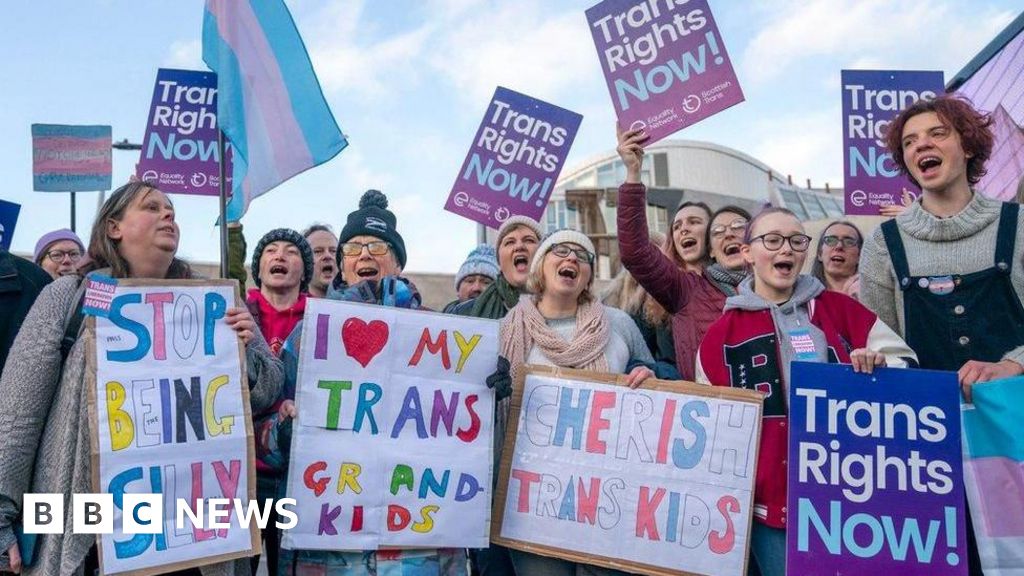The Scottish Government has recommitted to introducing legislation to enable people to self-identify their legally recognized gender.
The Gender Recognition Reform (Scotland) Bill was passed by the Scottish Parliament in December 2022, but the UK Government blocked its passage due to concerns that it would impact on equality laws across the UK.
UK ministers used section 35 of the Scots Act to veto the bill.
Last year, the Court of Session in Edinburgh rejected the Scottish Government's legal challenge to the veto.
In an interview with BBC Scotland News on Thursday, John Swinney refused to say whether he would start talks with a future Labor government on the Gender Recognition Reform Bill.
The first minister said he would “wait and see” what the political situation would be.
However, the Scottish Government has now confirmed that its position remains that it wants the Article 35 challenge to be lifted and the Bill to come into force.
Deputy Prime Minister Kate Forbes, who was on maternity leave when the bill was passed, previously said she had “serious concerns” about gender identity.
On Friday, she told BBC Scotland News she “wholeheartedly supports” the Scottish Government's position.
She said: “The First Minister has made it perfectly clear that the Scottish Government intends to promote, protect and strengthen the rights of all LGBT people in Scotland, and I wholeheartedly support that position. ” he said.
Speaking after being sworn in at the Court of Session in Edinburgh, she added that the government was “united” to achieve change in Scotland on a number of issues, including the cost of living and the strain on public services.
She stressed that she adheres to collective responsibility, meaning she supports all Scottish Government policies.
Representatives from the SNP's official LGBTQ+ group Out for Independence said they met with Mr Swinney and Social Justice Secretary Shirley Anne Somerville on Friday and received “tangible reassurances” that the bill would go ahead. Stated.
The group said it had had “frank, honest and open discussions” with the first minister.
They added that they were reassured that the Scottish Government would move forward with legislation to abolish conversion therapy and that it would “remain trans-inclusive”.
The Labor Party has indicated that it does not intend to abolish the Section 35 Order even if it forms the next government in the UK.
A Scottish Government spokesperson said: 'The GRR Bill has been passed by the Scottish Parliament. It will become law once the UK Government lifts the legal block, Section 35 Order.
“The problem is that the current UK government says it won't do that.
“The Scottish Government’s position is simple: the UK Government should lift the Section 35 Order.
“But they have made it clear that they will not do that, and unless they do so, it is simply illegal to enforce this bill.”
Meghan Gallacher, deputy leader of the Scottish Conservatives, said: “Women's groups and the majority of Scots are disappointed to hear that John Swinney is reinforcing Nicola Sturgeon's reckless gender identity policy. Deaf,” he said.
“This is further evidence that John Swinney is spelling much the same thing and is sticking to the same failed and flawed approach as Nicola Sturgeon and Hamza Yousaf.”


